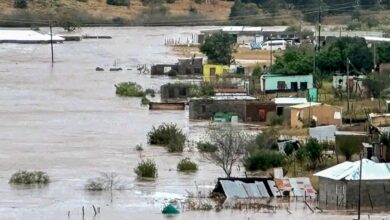
“We can achieve our aspirations as a continent if we break inferiority complex, get rid of greed, and aim for excellence. We have experienced years of mediocrity and used our past as an excuse for our under-performance. It’s time we all changed.” – Dr. Mensa Otabil
Is Africa still at a critical crossroads, or has the ship veered off course entirely?
This Africa Month, I find myself reflecting deeply on this question. The once-hopeful Afro-optimism fueled by the “Africa Rising” narrative now seems dimmed. Decades of hopeful rhetoric have not translated into meaningful change in the lives of many Africans. Looking at the state of development around the continent, Africa month invites more questions than hope. Why does the emerging talent continue to seek validation outside our borders? Why is innovation still largely imported? Even in 2025, is it justifiable for the continent to consume far more than it produces.
With all volumes of research produced, aid and political shift, this paradox is sobering. Africa, a land rich in natural resources, vibrant with youthful energy, and anchored in ancient wisdom, remains burdened by underdevelopment, systemic inequality, and a fragmented identity. Our most daunting challenges are not just economic or political, the psychological instability of Africa perpetuates her suffering. This quiet crisis entrenched over generations continues to hold us back.
Listening to Dr. Mensa Otabil, one of the most insightful Pan-African thinkers and leaders of our time, I found myself deeply moved by his provocative words. I fully agree with his assertion that three foundational shifts are crucial to Africa’s transformation: dismantling the inferiority complex, rejecting greed, and normalizing excellence.
Africa’s journey is not about catching up with the West. It is about catching up with ourselves, with our potential, our legacy, and our responsibilities.
The Inferiority Complex: A Quiet Crisis
An African mind continues to be a platform of many silent battles. Of these, the inferiority complex seems to dominate, it haunts many Africans, in a subtle yet corrosive manner. It appears no amount of academic achievements, material and wealth accumulation, status or heights we reach are liberative. Inferiority complex manifests in how we treat ourselves and each other as Africans, our conduct is characterized with suspicion instead of trust, condescension rather than respect.
From our politicians to our professionals, from our priests to our public servants, Embracing Africa as equals within the global community, should begin by treating each other as valuable as Africans, we must foster a culture of dignity and mutual respect. Africa May should not only be about speeches, slogans or quoting Nkrumah, it should be a month of promoting love for self, translating into treating a fellow African and the environment with dignity and care. It should be about renewing a sense of worth that permeates our education, media, and culture. Rejecting the stereotype of Africa as a dumping ground for failed ideas and poor-quality products, and doing this by employing capital amongst young and talented Africans. We need pragmatism.
Africa is the world’s untapped catalyst. But to unlock this potential, we must first sever the psychological chains of self-doubt and inferiority. I believe no individual or nation can rise above the image it holds of itself.
Greed: The Saboteur of Progress
In His book, Africa`s wellbeing in an uncertiain world, Professor Vusi Gumede submits that among the biggest issues in Africa, is the elite, not just politicians, who are preoccupied with benefiting themselves alone at the cost of society. Greed, is a silent saboteur, it is hollowing out institutions, corrodes trust, and keeps widening inequality. In many African contexts, leadership is too often viewed as a gateway to enrichment rather than a platform for service. This misalignment of values stifles growth, discourages innovation, and disillusions the young.
We need to promote new ethos of leadership, one rooted in impact, not income, established on service, not status. Aspirant leaders must interrogate their motives to lead, Africa is surely tired of giving endlessly, she cannot afford the cost of greed any longer.
Transparency, integrity, and accountability must cease to be buzzwords and become guiding principles in both public and private life. And to be clear: this is not only about governments. Each citizen must take personal responsibility. Building a better Africa starts by not stealing from your neighbor, school or misusing resources, however small they may appear.
Excellence: The Forgotten Tradition
We often speak of excellence as though it is a foreign concept, but it is not. Excellence is deeply African. Our ancestors built pyramids, mapped the stars, developed complex trade routes, and governed vast empires long before colonization. Yet today, any book, speech or lecture on excellence rarely acknowledges or references Africa.
Poor service, inefficiency, and low standards are brushed off with “this is Africa.” As a people, we internalized being associated mediocrity. This is poisonous. It normalizes failure and justifies stagnation.
We must reclaim excellence as a cultural value. Excellence must guide our classrooms, fuel our innovation labs, and drive our governance. It must inform how we build cities, produce art, conduct research, and compete in global markets. The bar must be raised and kept high.
Dr. Otabil’s declaration, “It’s time we all changed” is a call to arms. We cannot wait for saviors or subsidies. We must each play our part in shaping the Africa we want.




